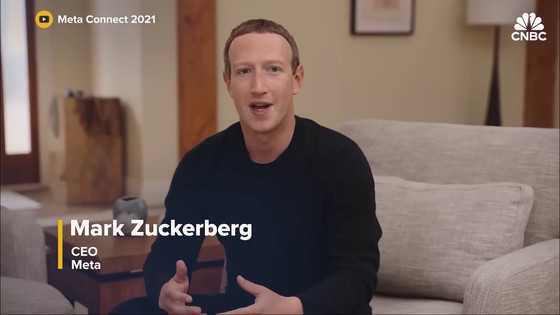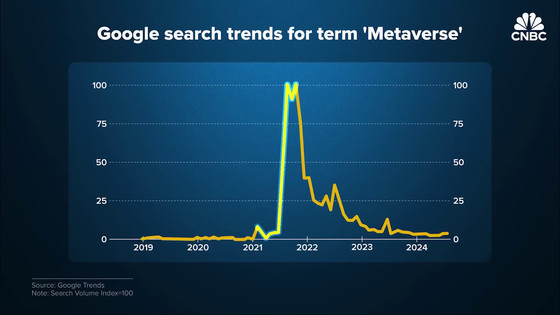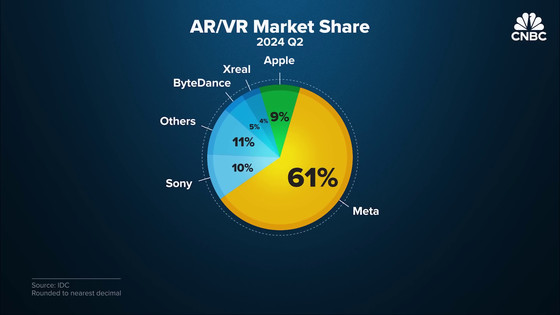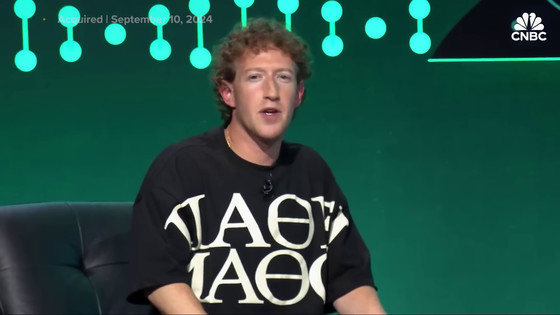Why is Meta, the parent company of Instagram and Facebook, pushing ahead with the metaverse even though it's causing trillions of yen in losses?

Meta, led by CEO Mark Zuckerberg, is promoting the online virtual space 'Metaverse' as its future main business. However, more than three years have passed since Meta changed its name, and there is still no sign of the Metaverse flourishing as the next generation social media platform. Nevertheless, the economic media CNBC explains why Meta continues to pursue the Metaverse concept.
The metaverse has attracted attention amid the social isolation caused by the COVID-19 pandemic, with major companies setting up metaverse departments and appointing heads in succession.

Banks have opened branches in the metaverse, and celebrities have even bought virtual real estate. Citibank

At the center of this trend is Meta, which

Zuckerberg explained that the next generation of the Internet will be a more immersive experience than just looking at a screen. He also set an ambitious goal of reaching 1 billion users by 2030.

However, the concept of the metaverse itself remains vague: it is generally described as a virtual space where users can interact through avatars, but there is no uniform understanding of it across the industry.

The concept of the metaverse itself is not new, with online gaming platforms such as Second Life and World of Warcraft being early examples.

Meta launched the VR multiplayer game 'Horizon Worlds' in December 2021, but results have fallen short of expectations.

The Reality Labs division has posted an operating loss of $58 billion since 2020, and Horizon Worlds' monthly active users are less than half of its target. Web3-related metaverse projects have also struggled, with many failing.

As of press time, the metaverse has all but disappeared from tech discussions: Google searches for the term 'metaverse' peaked in October 2021, then dropped sharply and plateaued in 2024.

However, Meta's strategy goes beyond just building VR spaces: the company has secured 60% of the VR headset market share and is also developing AR glasses.

Zuckerberg said he aims to build his own platform that is not dependent on Apple or Google, which could double his profitability. He also said that if AI-enabled smart glasses become widespread around the world, it will be 'one of the most successful products in history.'

Meta's metaverse strategy, while currently suffering huge losses, is positioned as a long-term investment in the dominance of the next generation of computing platforms, and it may be another decade before we know for sure whether it will be a success or not.

Related Posts:
in Web Service, Video, Posted by log1i_yk







